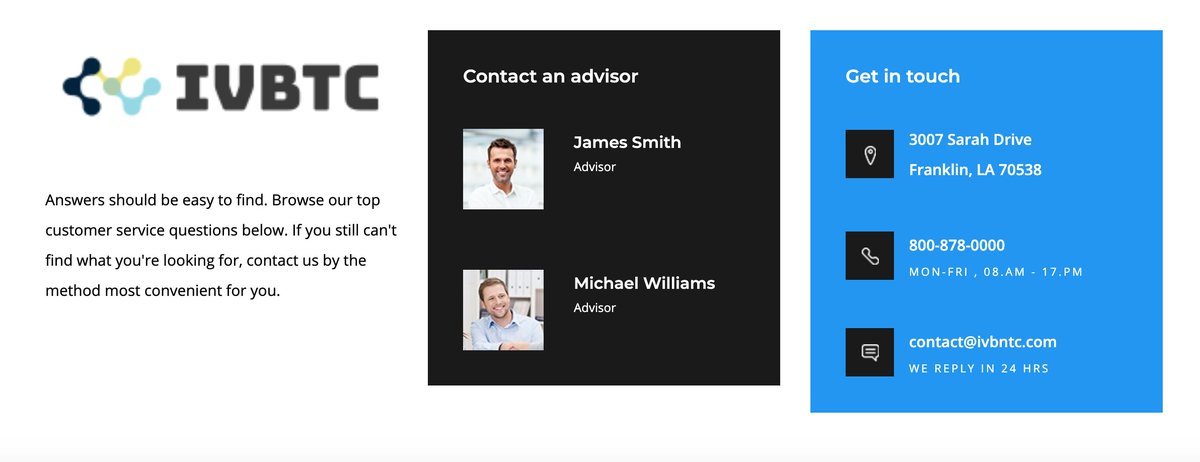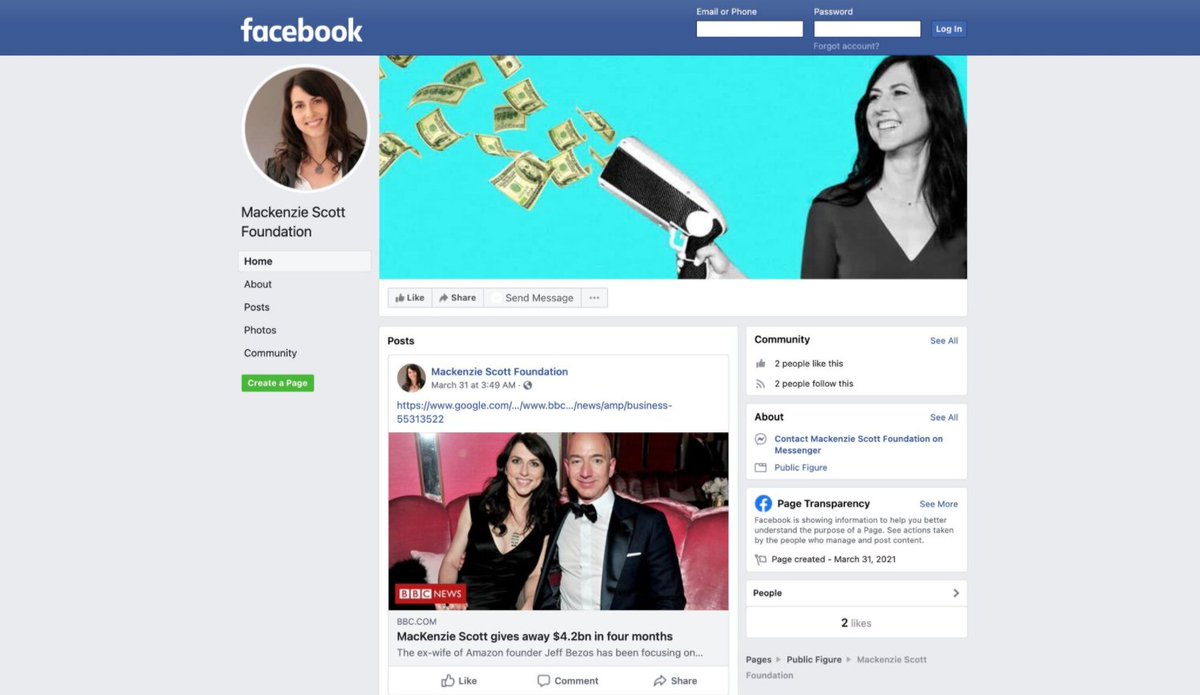This is a story about online scammers. It involves the famous philanthropist MacKenzie Scott, a fake bank website, Bitcoin transfers, counterfeit Facebook pages and, at its center, a woman who needed a helping hand and lost everything instead. THREAD https://www.nytimes.com/2021/04/24/business/mackenzie-scott-giving-scams.html">https://www.nytimes.com/2021/04/2...
On Jan. 4, I received a message from a reader. Danielle Churchill thought she was receiving a life-changing amount of money from MacKenzie Scott, ex-wife of Amazon founder Jeff Bezos, but she had begun to fear that she’d fallen into the clutches of online scammers. 2
She reached out to me because, like a lot of other reporters in December, I had written a story about the unusual way Ms. Scott gave money, with her reps tapping people out of the blue to say they were getting huge sums. 3 https://www.nytimes.com/2020/12/20/business/mackenzie-scott-philanthropy.html">https://www.nytimes.com/2020/12/2...
When Danielle Churchill, raising 5 children including a son with autism, heard from this supposed “MacKenzie Scott” she actually *assumed* it was a scam. She found stories like mine and others and began to hope. 4
Victims of cons are often ashamed. They feel duped. They don’t like to tell their stories. Yet experts say that sharing their stores is exactly how they can save other people from the same situation. 5
Ms. Churchill said she was not lured in by greed. She wanted to pay for more speech and occupational therapy for her son with autism. She thought at this critical age it would set him on a path for success in life. 6
I knew very little about these kinds of scams and I think, like a lot of people, I imagined something pretty straightforward. After months in this rabbit hole I realized they are more devious—ingenious in their way—than I could have imagined. 7
Up front there was no request for money. Ms. Churchill was told to sign up for an account at a very legitimate looking bank. Username, password, even all the terms of service we know we should read but skip over. 8
And there it was: $250,000 in the account, just like they promised. But wait, you need a Tax ID number and there are some fees associated with it. They reel you in slowly, bit by bit, and the more you& #39;ve sunk the more they ask. 9
Every few days new “MacKenzie Scott” accounts pop up on Instagram and Facebook. People beg in the comments for help. A person with knowledge of Ms. Scott& #39;s giving confirms that they are all bogus. 10
Here is the story. Give it a read and whatever you think, don’t blame or shame victims. As every single expert I spoke with reminded me, these are professional criminals and they are very good at exploiting people. END https://www.nytimes.com/2021/04/24/business/mackenzie-scott-giving-scams.html">https://www.nytimes.com/2021/04/2...

 Read on Twitter
Read on Twitter





